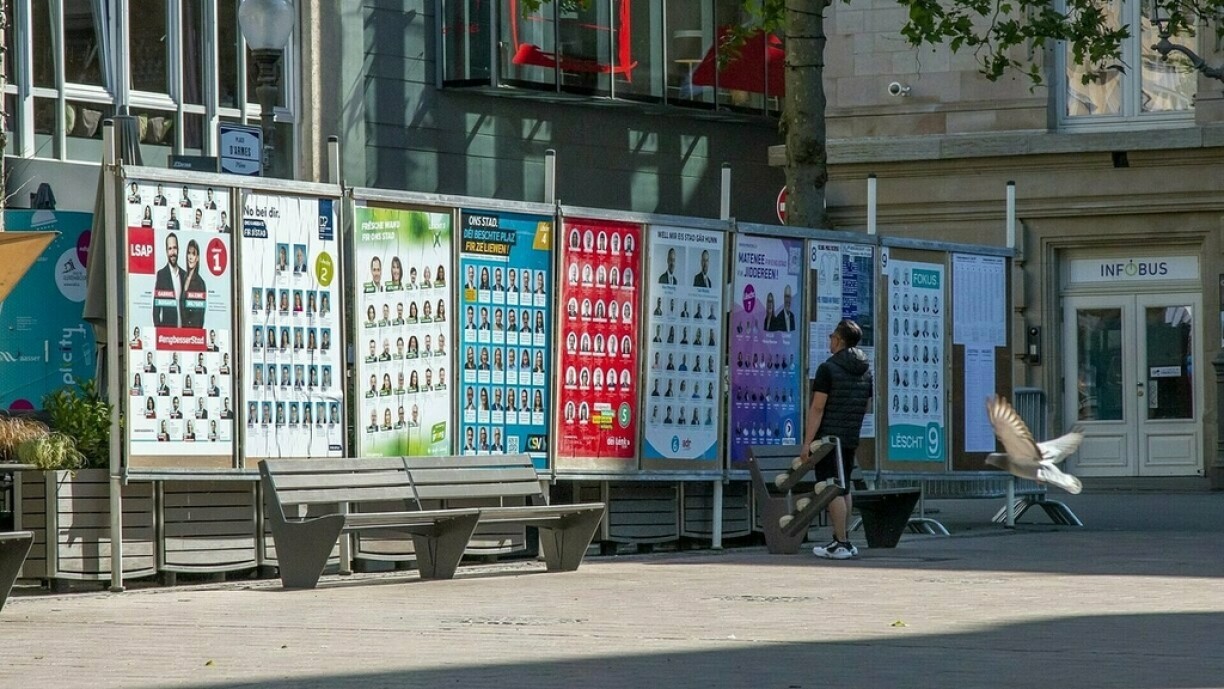
The budget, endorsed at the outset of the year by the Luxembourg Socialist Workers’ Party (LSAP), the Democratic Party (DP), the Green Party (déi Gréng), the Christian Social People’s Party (CSV), the Alternative Democratic Reform Party (adr), the Left Party (déi Lénk), the Pirate Party, Fokus, and Volt, is intended to cover advertising costs across various media platforms, including newspapers, the internet, radio, and TV. Notably, candidates are not supposed to finance their campaigns beyond this predefined amount.
However, it is evident that this budget is not consistently upheld, with parties and candidates seemingly navigating around the agreement’s boundaries, which contain certain ambiguities. One such ambiguity is that the budget was perceived by some to cover the costs of broadcasting advertisements or spots exclusively, excluding production expenses. In addition, certain parties interpreted the agreement as only applicable during the official campaign period. The two most blatant examples of this are Luc Frieden and Michel Wolter of the CSV.
The national lead candidate of the CSV initiated an extensive advertising campaign over the summer, including on the RTL website, well ahead of the official campaign launch. Meanwhile, Michel Wolter invested in high-cost video production, with the clips being shared on his personal Facebook account.
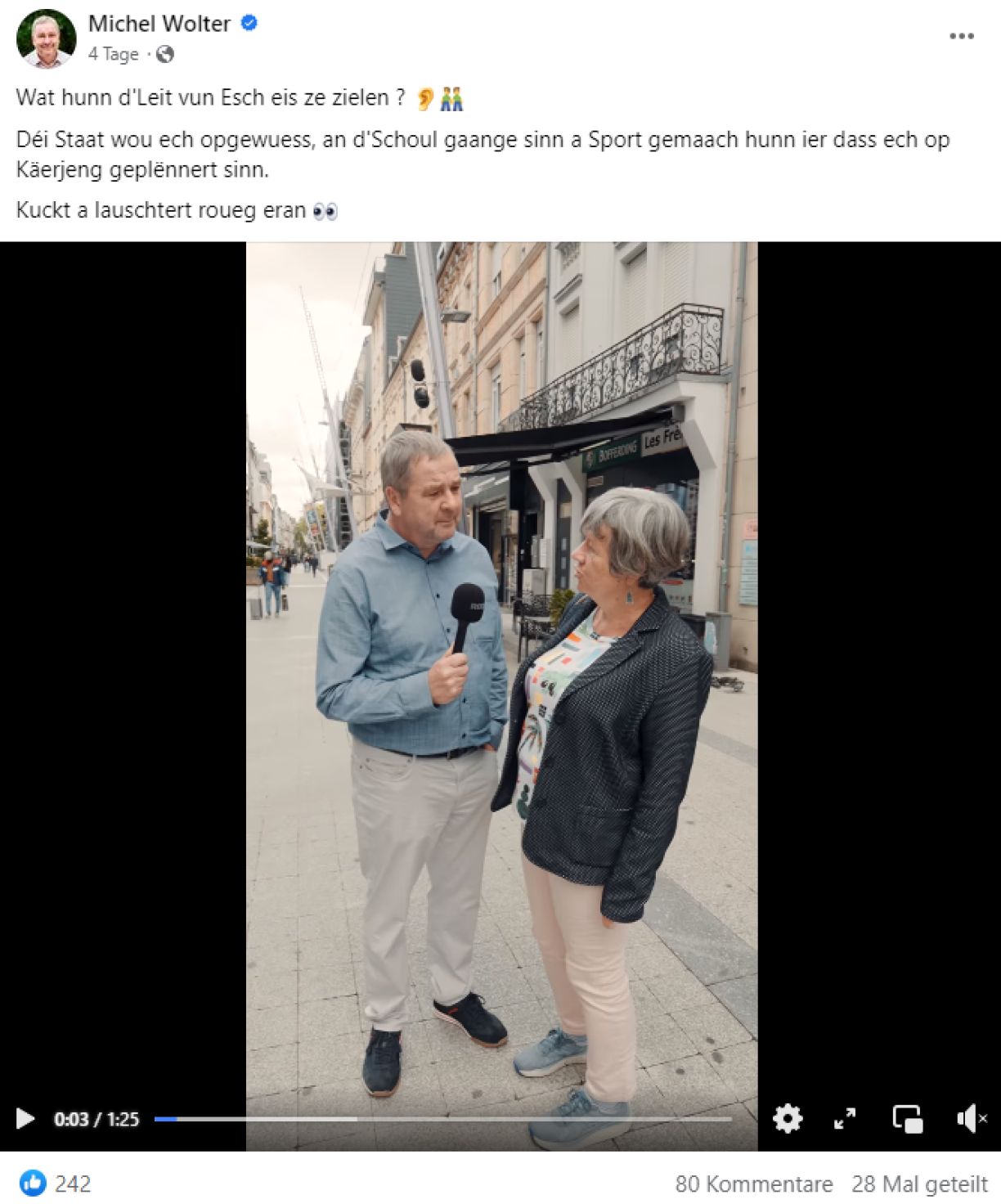
Sam Tanson, the national lead candidate of the Green Party, shared videos from her summer tour across various social media platforms.
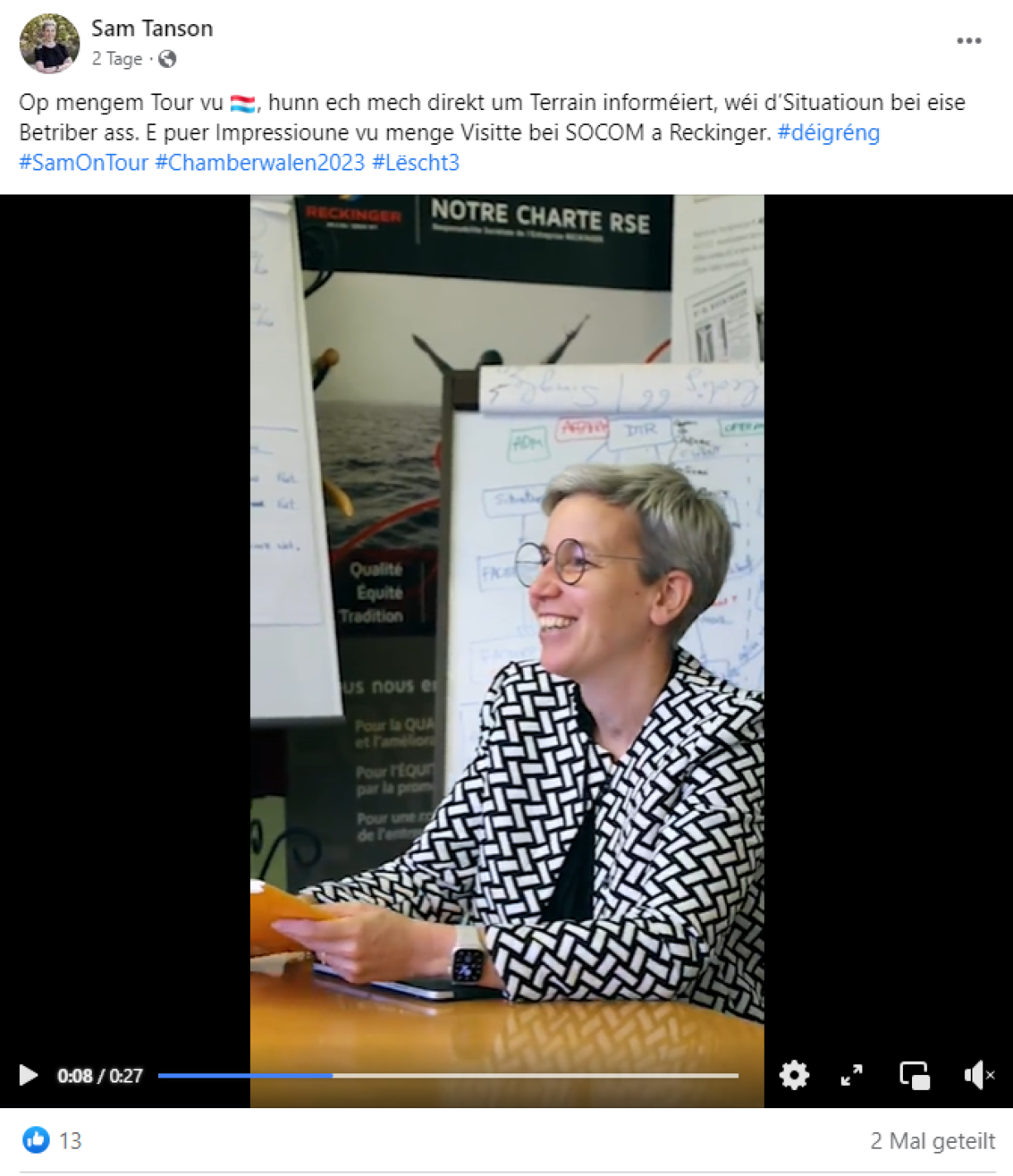
Prime Minister Xavier Bettel, through his official account managed by the Ministry of State, has invited his 72,000 followers to attend DP election meetings. These “invitations” are sometimes signed by Bettel, sometimes not.
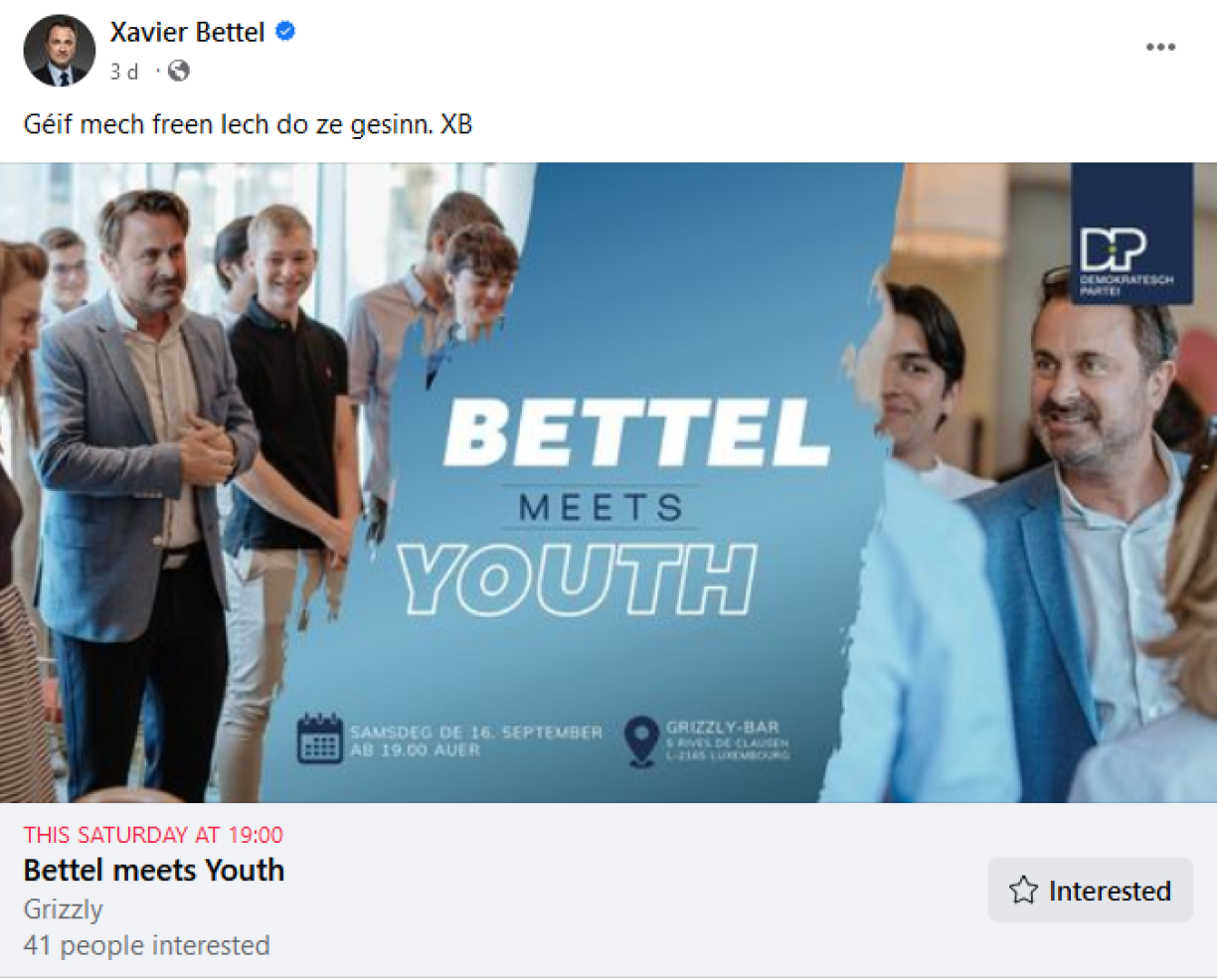
The LSAP has used YouTube to upload a video series called “Home Stories” since the summer, aiming to introduce its MPs and convey its election messages.
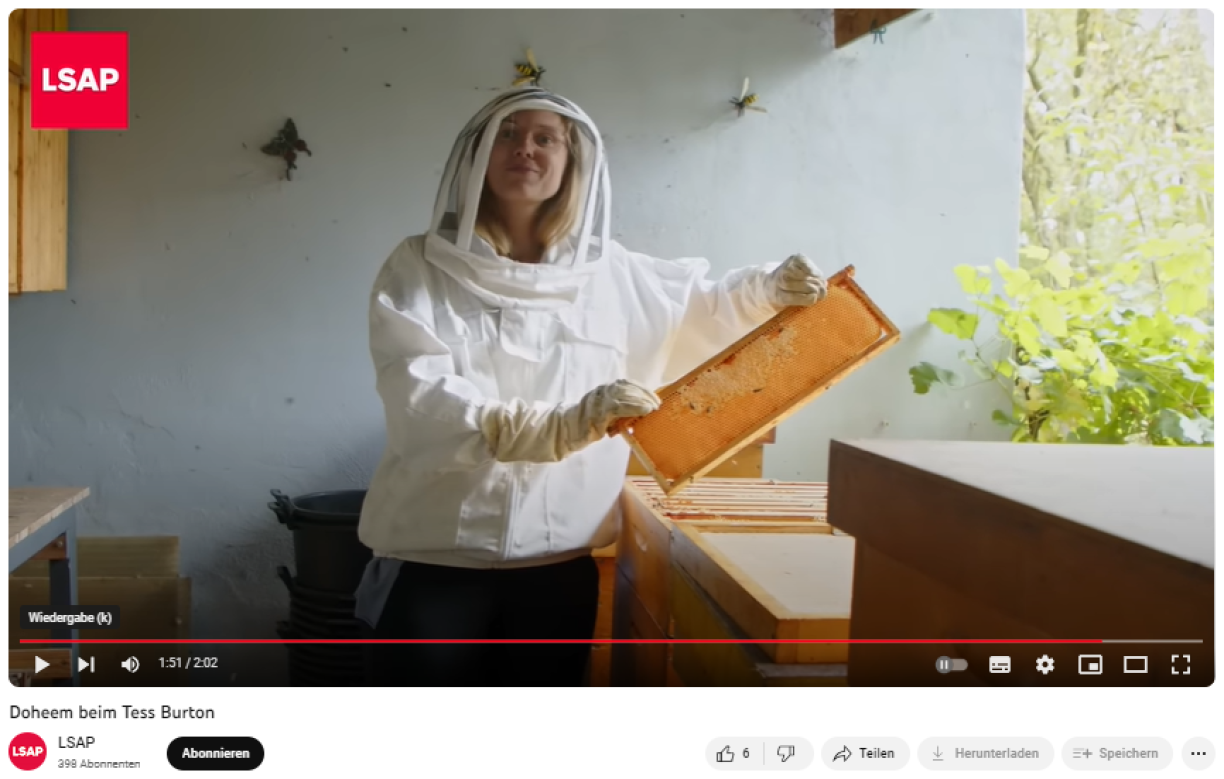
The figures from the 2018 election year also tell a clear story of budgets that exceeded initial agreements. Before the elections, the DP, LSAP, Green Party, CSV, and adr had set a maximum campaign budget of €75,000. This amount was intended to encompass advertising expenses in the written press, online advertising, and radio or TV spots, with no distinction between production and broadcasting costs at the time.
During the 2018 legislative elections, the signatory parties limited their advertising activities to exclude cinemas and additional advertisements on RTL Radio and Télé, beyond the official campaign ads. They also refrained from using posters in public transport and committed to a maximum of three “distribution to all letterboxes” campaigns.
However, the financial declarations submitted by these parties for state party financing revealed a stark contrast, indicating that the campaigns exceeded the agreed-upon budget substantially.
In 2018, the CSV declared €704,555 for “election expenses,” €211,748 for “advertisements,” and €73,896 for “advertising material, management costs.” An additional €28,080 was allocated to “other election expenses,” pushing the total beyond €1 million.
The LSAP reported €911,868 in election expenses for 2018, while the DP’s expenses amounted to €567,113. The Green Party’s campaign spending reached €441,592.
The adr’s total bill for campaign expenses came to €434,491, distributed across various categories. Meanwhile, the Pirate Party and the Left Party spent €108,972 and €179,732, respectively, on their election campaigns. However, it is worth noting that these two parties declined to sign the election campaign agreement for various reasons at the time.
These agreements are voluntarily entered into between political parties, without formal oversight. Independent of these agreements, election laws stipulate conditions for state reimbursement of election expenses. To qualify, parties must present complete lists in all constituencies and secure at least one seat in the Chamber of Deputies. Successful parties receive a lump sum of €50,000, which increases to €100,000 if they have five or more MPs and further rises to €150,000 with eight or more MPs, reaching €200,000 if they secure twelve or more seats. Additionally, each MP contributes an extra €10,000 to their party’s funds.